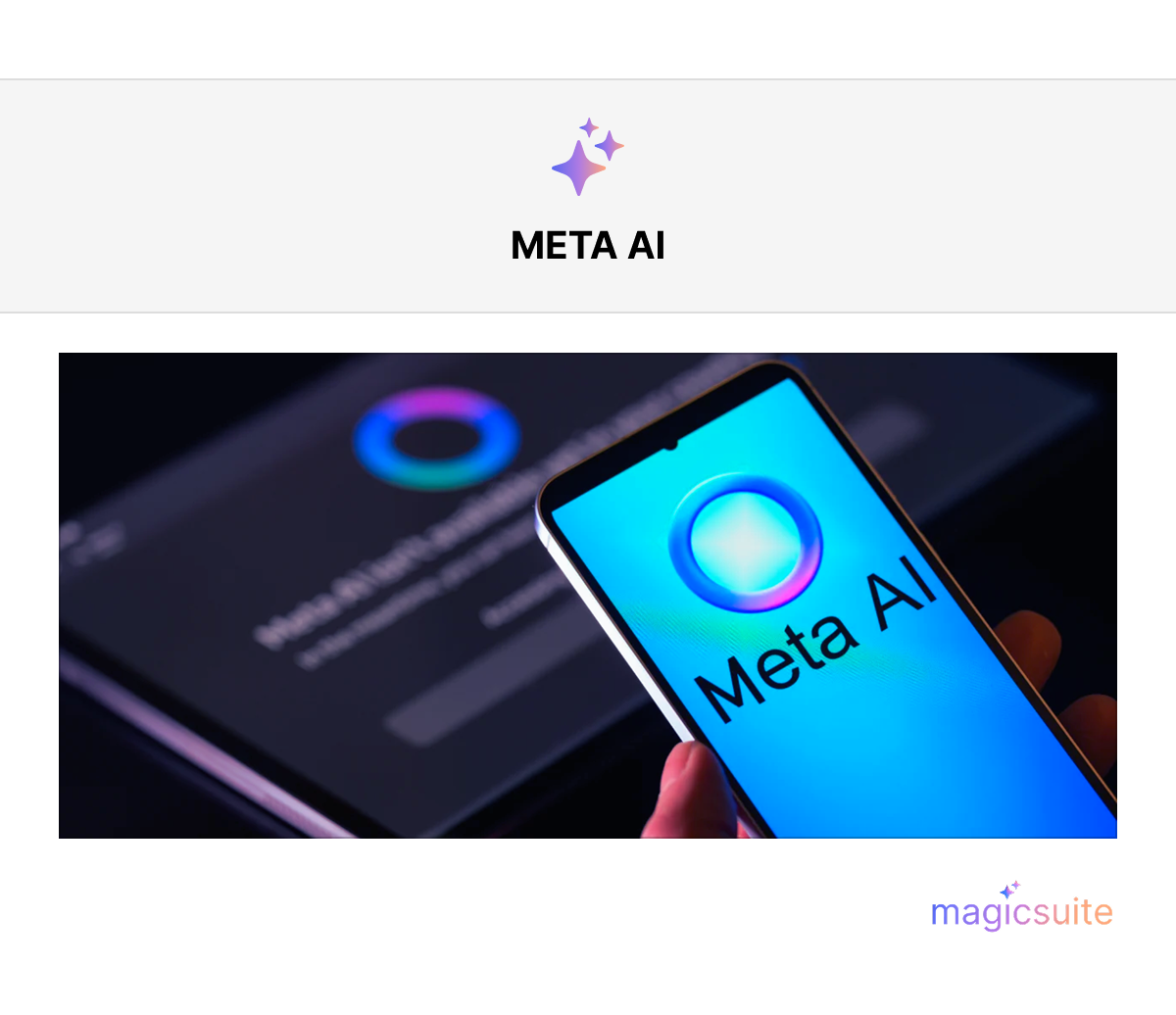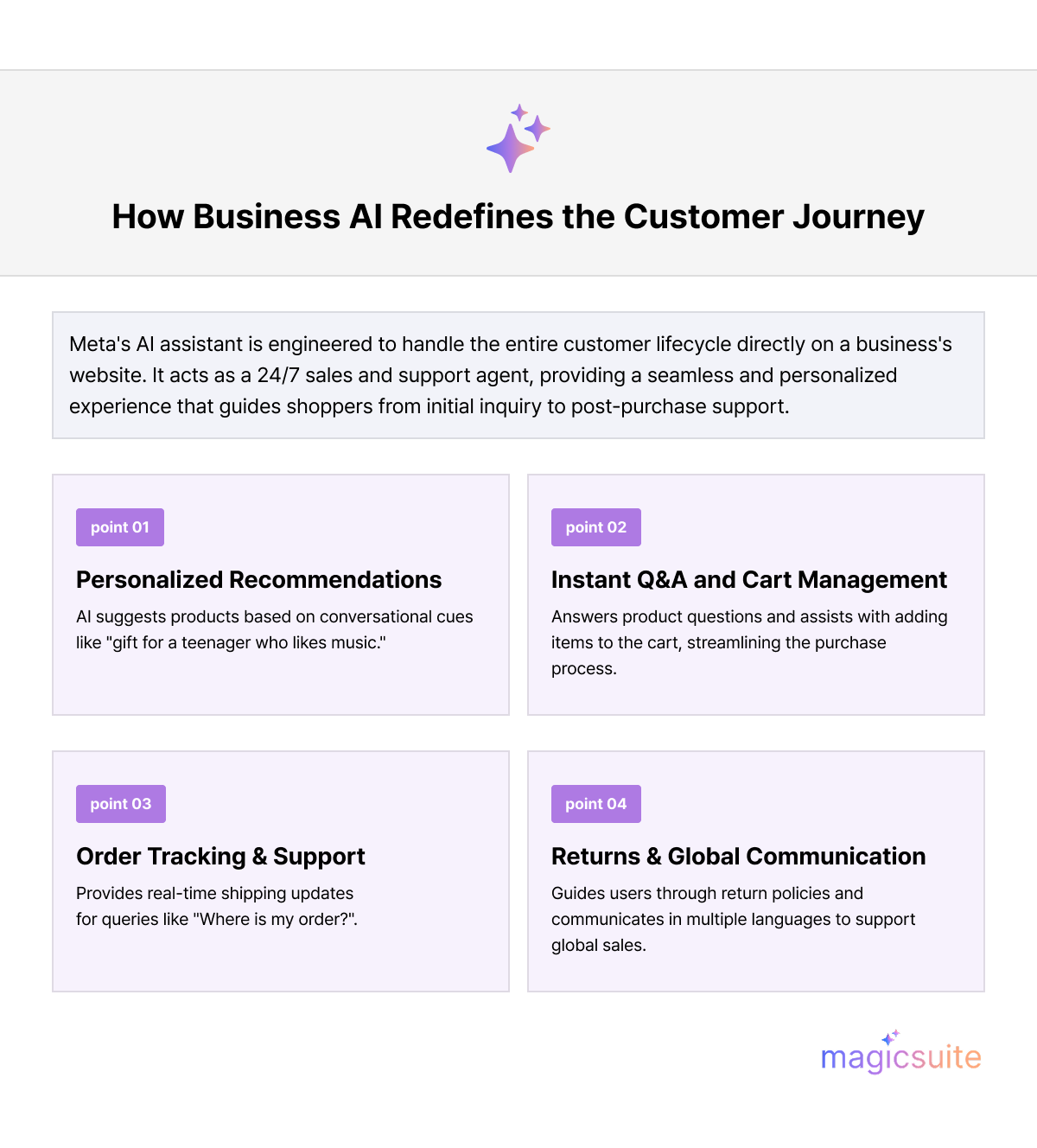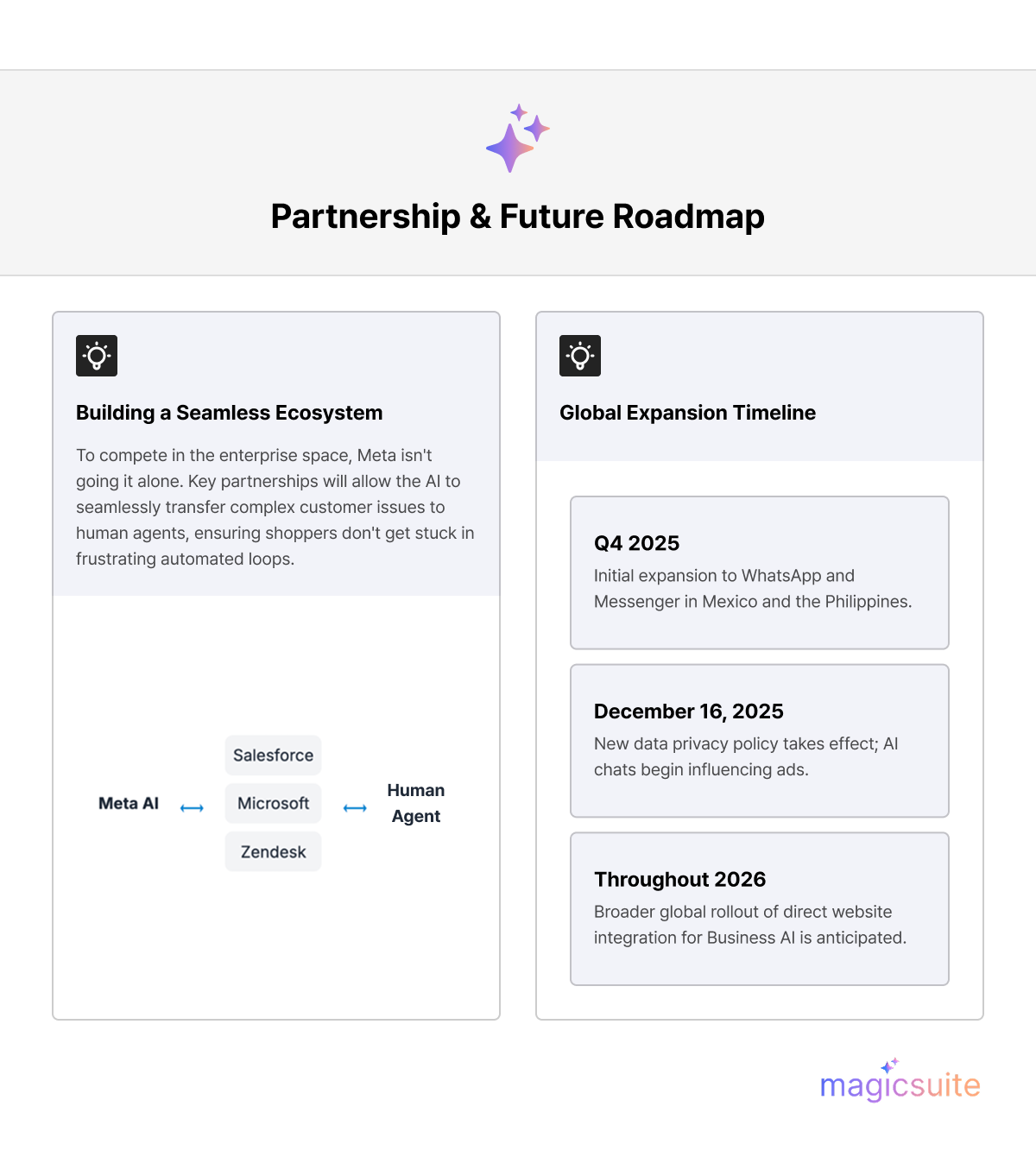Meta launches its new Business AI, an always-on sales and service agent for third-party websites. Learn how it works and the new privacy rules for ads
%20(1).png)
Meta, the parent company of Facebook and Instagram, is making its boldest move yet to become an Artificial Intelligence (AI) powerhouse. The company has announced the launch of Meta Business AI, a digital assistant that businesses can now embed directly onto their own websites, expanding Meta's reach far beyond its social media apps. The goal is to provide a powerful, customized sales and customer service agent trained on a company's unique products, ready to chat with shoppers 24/7.

The new Meta AI chatbot is designed to guide customers through the entire buying process.

Meta Business AI true power lies in handling common customer headaches instantly, freeing up human staff for more complicated issues. For example, if a customer types "Where is my order?", the AI can instantly connect to the shipping system and provide the current location and estimated arrival time.
If someone says, "I need to return this item," the AI can guide them through the return policy or even start the return label process without needing an email. Moreover, the AI can communicate with customers in multiple languages, enabling businesses to sell globally without the need for a large, multilingual support team.
"We believe that AI-powered conversations are the future of commerce," stated a Meta spokesperson.
"By making our Business AI accessible directly on businesses' own websites, we are empowering them to offer seamless, highly personalized customer experiences that drive sales and build loyalty, wherever their customers choose to engage."
Also read Best Free AI Chatbots for Ecommerce Customer Service
Meta's launch of Business AI is a direct challenge to the biggest players in technology and e-commerce. This move puts Meta in direct competition with established enterprise software companies like Salesforce and ServiceNow.
It also challenges tech rivals like OpenAI, which recently enabled shopping and purchasing through its ChatGPT chatbot.
Meta's biggest advantage is its sheer size; with over one billion people using Meta AI monthly across Facebook and Instagram, the company has an unmatched amount of data and a proven platform for advertising. This new tool links its massive audience to third-party business websites.
Meta has a clever revenue strategy that encourages adoption on its own platform while building a new income stream from external websites.
The introduction of new AI tools has raised immediate questions about user privacy. Starting December 16, 2025, Meta will begin using a person's interactions with its AI chatbot to personalize the ads and content they see on platforms like Facebook and Instagram.
The lack of an opt-out option is a key concern for privacy advocates, who argue that the update blurs the line between a personal conversation and a mechanism for data extraction. If a user discusses planning a camping trip with Meta AI, that conversation will be used as a signal to show them ads for tents, hiking gear, or nearby campgrounds on their social media feed.
For sensitive topics, Meta has stated that conversations involving sensitive personal topics—such as health, political views, sexual orientation, or religion—will not be used for ad targeting. Users will still be able to manage their ad settings through Meta's existing "Ads Preferences" tool.

To compete in the complex world of business software, Meta has announced partnerships with major providers like Salesforce, Microsoft, and Zendesk. This collaboration will enable businesses to seamlessly transfer complex problems from their AI assistant to a human customer service representative, providing a seamless experience for shoppers.
The company anticipates a broader global rollout of the web integration in 2026, with initial expansions to WhatsApp and Messenger planned for Mexico and the Philippines, leveraging its vast messaging app infrastructure.
Meta’s launch is a clear signal that the future of shopping will be conversational. By providing businesses with a powerful, low-cost AI assistant, Meta aims to become the essential engine that connects customers to products, regardless of whether that conversation starts on Facebook, Instagram, or a business’s own website. The ultimate test will be whether the promise of faster sales can outweigh the ongoing concerns about user data privacy.
Want to explore more AI tools powering the future of business? Follow MagicSuite here.

Ace is the product manager of MagicSuite and multiple other projects at Makebot AI. With extensive experience in product development and leadership, Ace ensures that each project aligns with market needs and delivers innovative solutions. Passionate about technology and automation, Ace plays a crucial role in shaping AI-driven products that enhance efficiency and user experience.